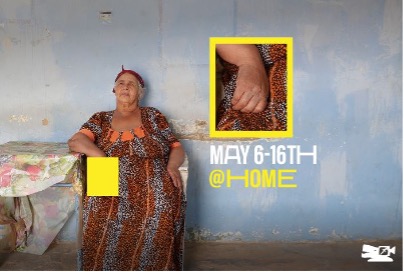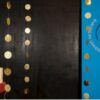This text is licensed under the Creative Commons license Attribution-NonCommercial-ShareAlike 4.0 International. The link to the original material is situated at the top right of the text.

Freiburger Filmforum
Freiburger Filmforum Team
2021
Keywords: transcultural cinema, ethnology, decoloniality, eurocentrism
Threads: Cooperating with(in) arts and culture, Inquiring, (Un)framing Knowledge
Short description
Personal appreciation
As well as its location. The cinema is located in an old train station building with only one screen. Which means that there are no parallel screenings and festival participants potentially have the chance to watch all the films together. This programming creates a very familiar atmosphere. Outside the cinema hall you can quickly get into conversation with the other (international) festival participants about the films, which doesn’t happen so easily at big festivals like Cannes or Berlinale.
For comparison: The Duisburger Filmwoche operates a similar format, with only one theatre and a focus on discursive exchange about the films screened. In contrast to Freiburg, however, only documentaries with a German, Austrian or Swiss film production are shown here – which makes it a relatively Eurocentric festival.
Contribution to the "Who knows?" handbook
Material(s)
Panel: If Objects Could speak - What would you answer?
Panel via zoom with His Majesty Makorani Mungase VII, King of the Pokomo and custodian of the Ngaji, the Sacred Drum / George Juma Ondeng´, National Museums of Kenya & International Inventories Programme / Dr. Sandra Ferracuti, former curator of Africa-collection at Linden-Museum Stuttgart, Anthropologist at University of Rome / Elena Schilling & Saitabao Kaiyare directors of If Objects Could Speak
Additional Information
| Location | Germany |
| Original language(s) | German, English |
| Existing translations | |
| Length | 10 days |
| Project runtime | 1985 - |
| Institution of affiliation | Kommunales Kino Freiburg |
| Sponsor(s) | Freiburg im Breisgau City MFG Baden-Würtemberg Baden-Würtemberg Ministry of Science, Research and Art Sparkasse Brot für die Welt Katholischer Fonds dap docubox Goethe Institute Offenburg University University Freiburg Source |
Additional Pictures
Creative Commons
Related Contributions

European University Film Award
2016
The project and award are based on the idea to support the transnational dissemination of European film culture, to give young Europeans an insight into different European life conditions and a sense of community through the shared enjoyment and discussion of films.

Roundtable: Undoing Discrimination? Diverse in Berlin?
Kenny Fries, Sanni Est, Miriam Camara, Rhea Ramjohn
Moderation: Samie Blasingame
2021
Are diversity measures in cultural institutions just another set of methods of solidifying what they claim to change? What are the inconspicuous formal routines, the small informal habits, the official and unofficial rules that create the feeling of running into a wall that one claims is not there?

Fribourg declaration et reviewing
Patrice Meyer-Bisch and alii Civil society
2007
In 2007, the "Fribourg group” concluded that the universality and indivisibility of human rights still suffer as a result of the marginalization of cultural rights and published the Declaration of Cultural Rights as a legal framework for cultural rights.







